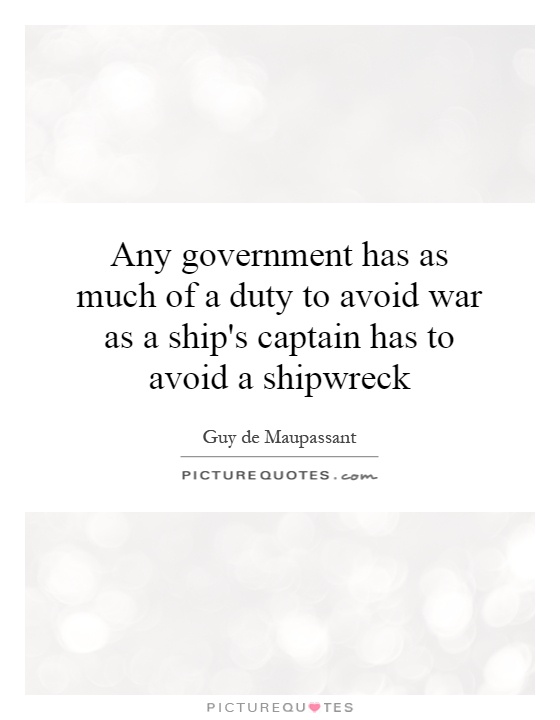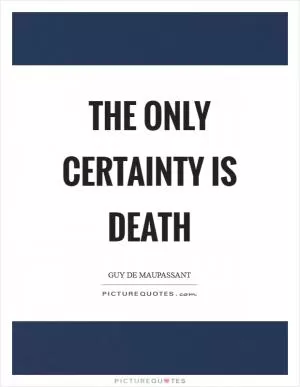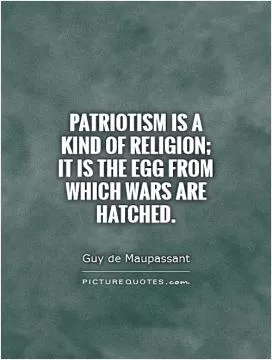Any government has as much of a duty to avoid war as a ship's captain has to avoid a shipwreck

Any government has as much of a duty to avoid war as a ship's captain has to avoid a shipwreck
Guy de Maupassant, a renowned French writer known for his realistic and often pessimistic portrayals of human nature, would likely have agreed with the sentiment that any government has as much of a duty to avoid war as a ship's captain has to avoid a shipwreck. Maupassant's works often explore the destructive consequences of war and the folly of human conflict, making him a strong advocate for peace and diplomacy.In his short story "Boule de Suif," Maupassant vividly depicts the horrors of war through the eyes of a group of travelers fleeing the Franco-Prussian War. The characters, from different social classes and backgrounds, are forced to confront their own prejudices and selfishness in the face of adversity. Through their interactions, Maupassant highlights the senselessness of war and the toll it takes on individuals and society as a whole.
Maupassant's anti-war sentiments are further evident in his novel "Bel-Ami," which follows the rise of a ruthless and ambitious journalist in Parisian society. The protagonist, Georges Duroy, manipulates and betrays those around him in his quest for power and wealth, mirroring the destructive nature of war and conflict. Maupassant uses Duroy's story to critique the corrupting influence of ambition and greed, warning against the dangers of unchecked aggression and aggression.
In light of Maupassant's views on war and conflict, it is clear that he would have supported the idea that governments have a duty to avoid war at all costs. Just as a ship's captain is responsible for the safety of his crew and passengers, so too are governments accountable for the well-being of their citizens. War, with its devastating consequences and loss of life, should be a last resort, to be avoided through diplomacy, negotiation, and compromise.












 Friendship Quotes
Friendship Quotes Love Quotes
Love Quotes Life Quotes
Life Quotes Funny Quotes
Funny Quotes Motivational Quotes
Motivational Quotes Inspirational Quotes
Inspirational Quotes